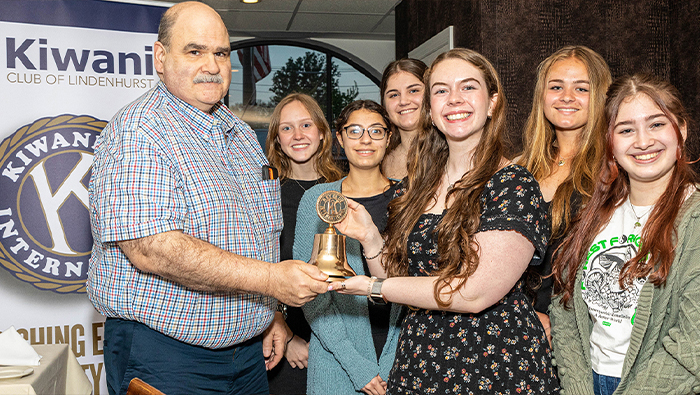
Arizona auction has raised millions for kids
The Prescott Kiwanis Club held its 75th auction in March
By Julie Saetre
Going once. Going twice. Sold!
For 75 years, those words have been representative of a fundraising tradition for the Kiwanis Club of Prescott, Arizona, U.S. In that time, the club’s annual auction has helped support children and families in the area — raising more than US$4 million in the past 50 years alone.
The auction had even been a 10-day televised event for many years prior to the COVID-19 pandemic. It has been online for the past three years, and it continues to be a major community event. This year, 624 items went up for bid during the event’s 10 days. And for the second straight year, a live evening event was added.
All together, this year’s auctions raised $171,000 — the culmination of much volunteer planning and effort.
“Preparing for the online auction starts at least 10 months before the auction goes live,” explains Tim McShane, a member of the Prescott Kiwanis Club and the 2023 auction chair.
Hard work pays off
Items worth $30 or more are donated by area businesses and organizations. This year, for example, participants could bid on hotel stays, rounds of golf, automotive services, computer repair services, youth sports camp reservations and much more.
With over 600 items ultimately donated, McShane says, it requires a lot of club coordination and organization — such as approaching item donors, completing item and business descriptions, and getting publicity information about the donor.
“The data input to our local and web-based auction system involves several people and several hundred hours,” he adds.
The subcommittee planning the live event also begins working months in advance, securing facilities and auction items. Those members handle a number of logistical roles, including publicity, finance, food service, sound, entertainment and event flow.
“Although we don’t keep track of volunteer hours for the auction, it’s likely 3,000-5,000 hours per year,” McShane says. “Approximately 10-15 members do the majority of these hours.”
That hard work pays off for the community’s children and their families: All auction proceeds are invested in a variety of youth, family and community services.
Partners and projects
Long-term success has resulted in support for a wide array of projects and causes over the years — including tens of thousands of dollars for scholarships awarded to high school graduates heading to a university or trade school.
Another auction-funded project allowed the Granite Mountain Middle School Band to install a locker system for their instruments. The club has also partnered with the city of Prescott for an outdoor play area at the Goldwater Lake Recreation Area. And the Kiwanians have sponsored a number of kid-friendly projects and facility improvements at the Prescott YMCA.
One of the largest auction-related projects is Kayla’s Hands Playground. The $350,000, state-of-the-art play space is dedicated to Prescott native Kayla Mueller, a human rights activist and humanitarian aid worker who was kidnapped while leaving a Doctors Without Borders hospital in Syria in 2013 and murdered in February of 2015.
All of these projects and partnerships exist, McShane says, because of the club’s continual maintenance and development of community relationships.
“We’ve used our club contacts, community centers of influence, print media and, most recently, social media to keep the mission of helping the children and their families in our community at the forefront of our efforts,” he says.


